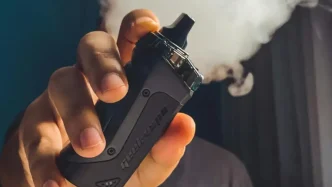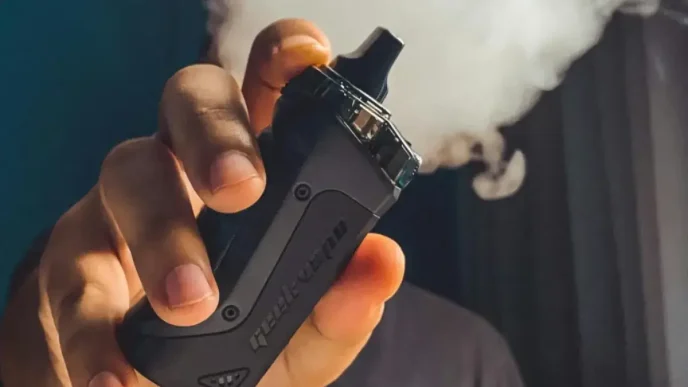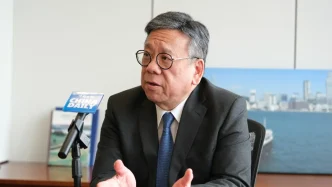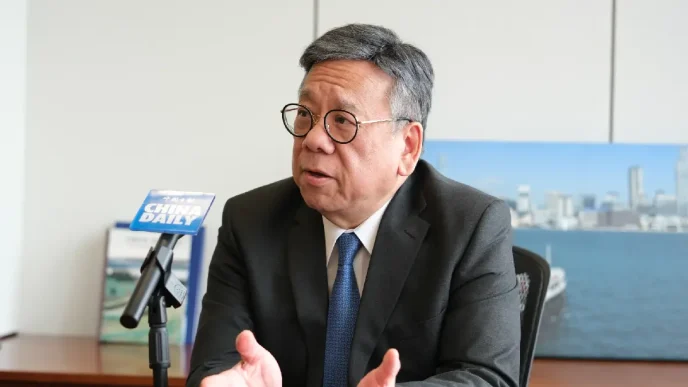In a significant stride for medical research in Asia, two senior surgeons from the National Cancer Centre Singapore (NCCS) have been awarded the prestigious Singapore Translational Research (Star) Investigator Award. Professor Pierce Chow and Professor Gopal Iyer, both recognised for their groundbreaking work, will spearhead innovative studies on liver cancer screening and head and neck cancer treatments, respectively. With $6 million in funding from the Ministry of Health’s National Medical Research Council, their research promises to address critical gaps in cancer care, particularly for conditions disproportionately affecting Asian populations.
A New Frontier in Liver Cancer Screening
Professor Pierce Chow, a 63-year-old senior consultant surgeon at NCCS, is set to revolutionise liver cancer screening over the next five years. His research targets patients with non-traditional risk factors, such as fatty liver disease, who currently fall outside existing surveillance programmes. In Singapore, liver cancer remains a deadly disease, with 92% of diagnosed patients succumbing to it, largely due to late detection. While screening is currently offered to those with chronic hepatitis B or C, the patient profile has shifted over the past two decades. Today, around 40% of liver cancer patients at NCCS have fatty liver disease—a condition affecting nearly 40% of Singapore’s population.
“It’s impractical to screen such a large group indefinitely with biannual ultrasounds and blood tests,” Professor Chow explained at a media briefing on 6 February. His solution lies in the gut microbiome, the complex ecosystem of bacteria and microbes in the digestive system. Preliminary studies led by Chow reveal stark differences in the gut microbiomes of fatty liver patients who develop cancer compared to those who do not. These differences manifest in distinct bile acid ratios in the bloodstream, which could serve as a predictive marker.
With the Star Award funding, Chow’s team aims to develop a population-level algorithm to identify high-risk individuals for targeted surveillance. A blood test to detect specific microbiome profiles is also in the works, alongside research into how diet and lifestyle changes might reverse microbiome imbalances and lower cancer risk. “This could be the first programme globally to address liver cancer risks specifically for fatty liver patients, offering early diagnosis and potentially life-saving outcomes,” Chow said.
The urgency of this research is underscored by stories like that of Yong Hock Lim, a 73-year-old Grab driver diagnosed with stage 3 liver cancer in May 2024. Despite having no history of hepatitis or heavy alcohol consumption, Yong’s fatty liver disease put him at risk—a risk that went undetected due to the lack of screening for his profile. His shock at the diagnosis reflects a broader need for inclusive strategies that Chow’s work seeks to address.
Tackling Head and Neck Cancers with Innovative Therapy
Meanwhile, Professor Gopal Iyer, 52, head of the department of head and neck surgery at NCCS, is focusing on a pioneering treatment for head and neck cancers, which are more prevalent in Asia than elsewhere. Singapore diagnoses around 950 new cases annually, with late-stage patients facing a grim 20% survival rate. Iyer’s research, also backed by $6 million from the Star Award, centres on tumour-infiltrating lymphocyte (TIL) therapy—a form of cell therapy that enhances a patient’s immune cells to fight cancer.
TIL therapy, first approved in the US in 2024 for advanced melanoma, has shown promise but remains untested for head and neck cancers. A major barrier to its adoption is the complex, centralised manufacturing process, which drives costs to around US$500,000 (S$677,000) per dose. Iyer and his team have developed a lab-based production system and are collaborating with the Netherlands Cancer Institute and Swiss biotech firm Tigen Pharma to refine it. Their goal is to reduce production time to three weeks from the current one month and slash costs to one-tenth of the current price by producing TILs locally at the Advanced Cell Therapy and Research Institute in NCCS.
“We are standing at the cusp of a new era in cancer treatment,” Iyer said at the briefing. “With our expertise and technologies at NCCS, we’re uniquely positioned to deliver a more cost-effective TIL therapy.” If successful, this could democratise access to cutting-edge treatment for head and neck cancer patients across Asia, where financial constraints often limit advanced care.
Why This Matters for Asia
Liver and head and neck cancers are among the most pressing health challenges in Asia, where incidence rates outstrip those in Western countries. Late diagnoses exacerbate poor outcomes, while high treatment costs exclude many from life-saving interventions. Singapore, as a regional hub for medical innovation, is well-placed to lead this charge, leveraging its robust research infrastructure and talent pool. The work of Chow and Iyer not only addresses local needs but could set a precedent for global cancer care, particularly in regions with similar demographic and health profiles.
For liver cancer, Chow’s focus on fatty liver disease taps into a growing public health concern. With obesity and metabolic disorders on the rise across Asia, fatty liver disease is becoming a silent epidemic, often undiagnosed until it progresses to severe conditions like cancer. Developing a scalable screening tool could transform preventive healthcare, ensuring that high-risk individuals are identified before it’s too late.
Iyer’s TIL therapy research, meanwhile, speaks to the urgent need for affordable advanced treatments. Head and neck cancers, often linked to lifestyle factors like smoking and betel nut chewing in parts of Asia, disproportionately affect lower-income communities who cannot afford expensive therapies. Reducing costs to a fraction of the current price could make TIL therapy a viable option, potentially saving thousands of lives annually.
Challenges and Speculative Impacts
While the potential of these projects is immense, challenges remain. For Chow’s screening algorithm, the accuracy of microbiome-based predictions must be validated across diverse populations, as gut bacteria can vary widely based on diet, genetics, and environment. If successful, however, this could pave the way for personalised medicine, tailoring surveillance to individual risk profiles. It’s worth noting that such outcomes are speculative at this stage, with no confirmed evidence yet of the algorithm’s efficacy on a large scale.
Similarly, Iyer’s goal of slashing TIL therapy costs hinges on streamlining production without compromising quality—a complex technical hurdle. If achieved, this could disrupt the global cancer treatment market, making Singapore a leader in affordable cell therapies. Again, these impacts remain hypothetical until clinical trials and cost reductions are realised.
A Beacon of Hope
The recognition of Professors Chow and Iyer with the Star Investigator Award signals Singapore’s commitment to tackling some of the most intractable health issues facing Asia today. Their research, rooted in translational science, bridges the gap between laboratory discoveries and real-world applications, offering hope to patients like Yong Hock Lim who might otherwise slip through the cracks of current medical systems.
As Chow’s team works to redefine liver cancer screening and Iyer’s team pushes the boundaries of cell therapy, the implications extend far beyond Singapore’s borders. These initiatives could inspire similar efforts across South East Asia, where healthcare systems often grapple with resource constraints and late-stage diagnoses. For now, the global medical community watches with anticipation, hopeful that these pioneering efforts will yield breakthroughs that save lives and redefine cancer care for generations to come.














